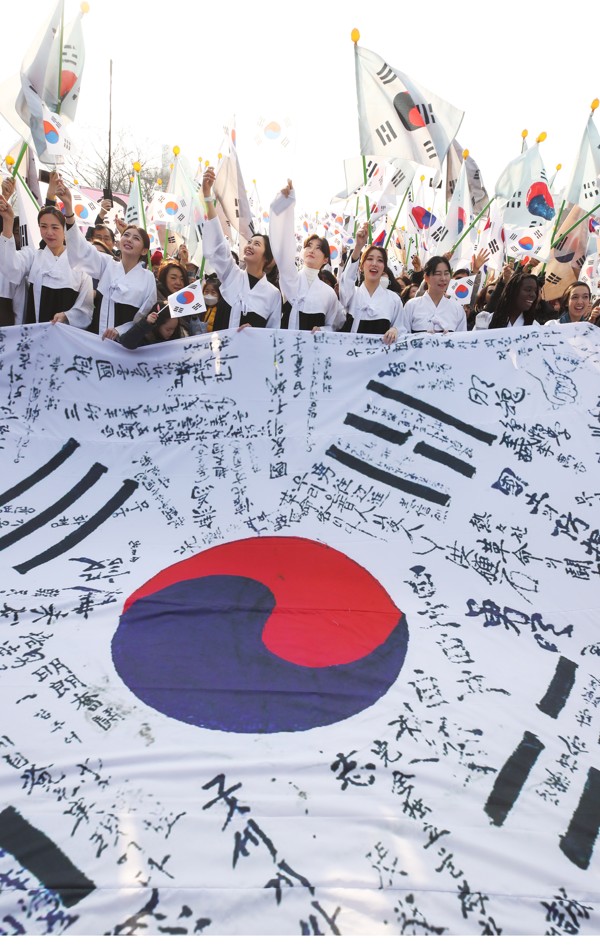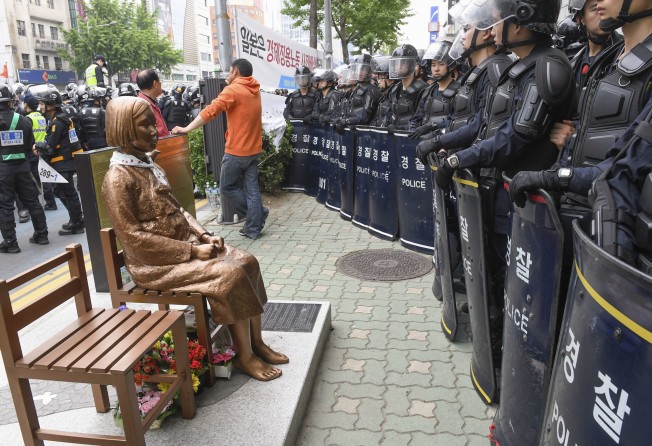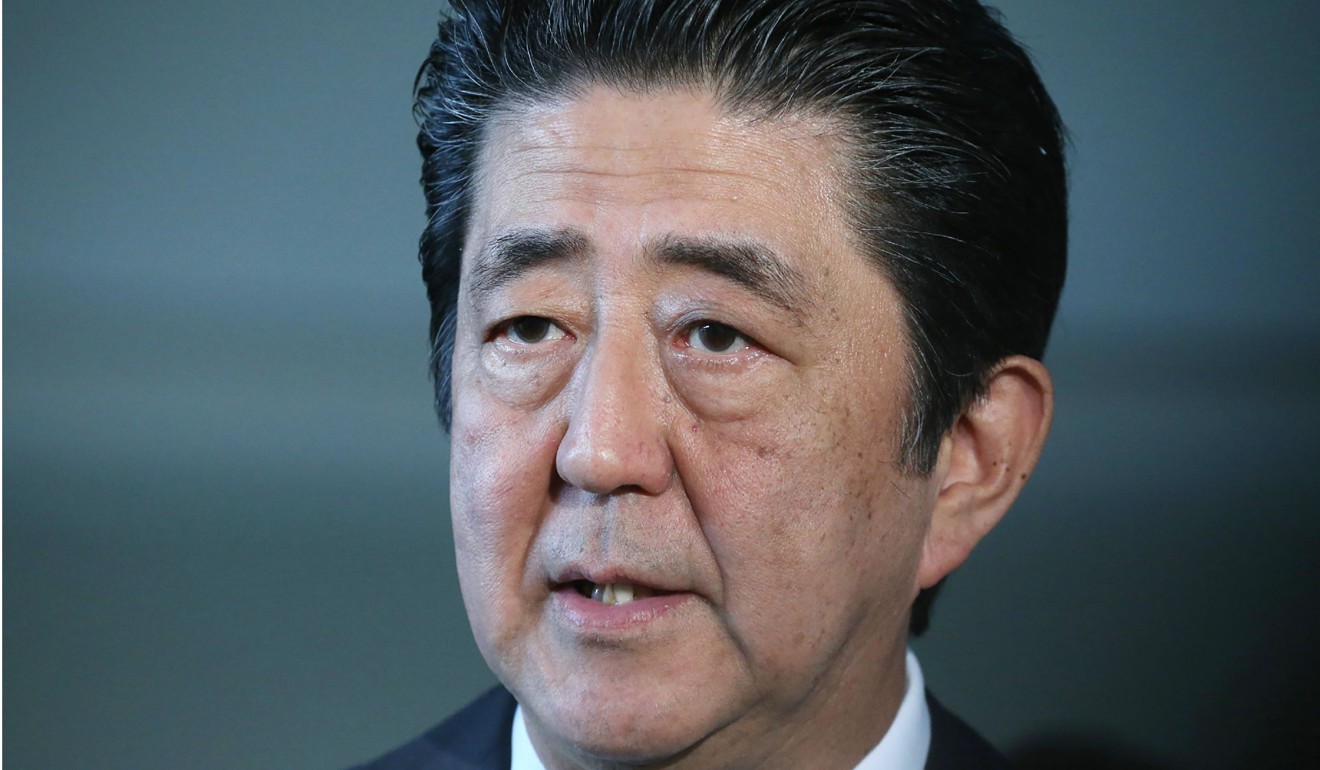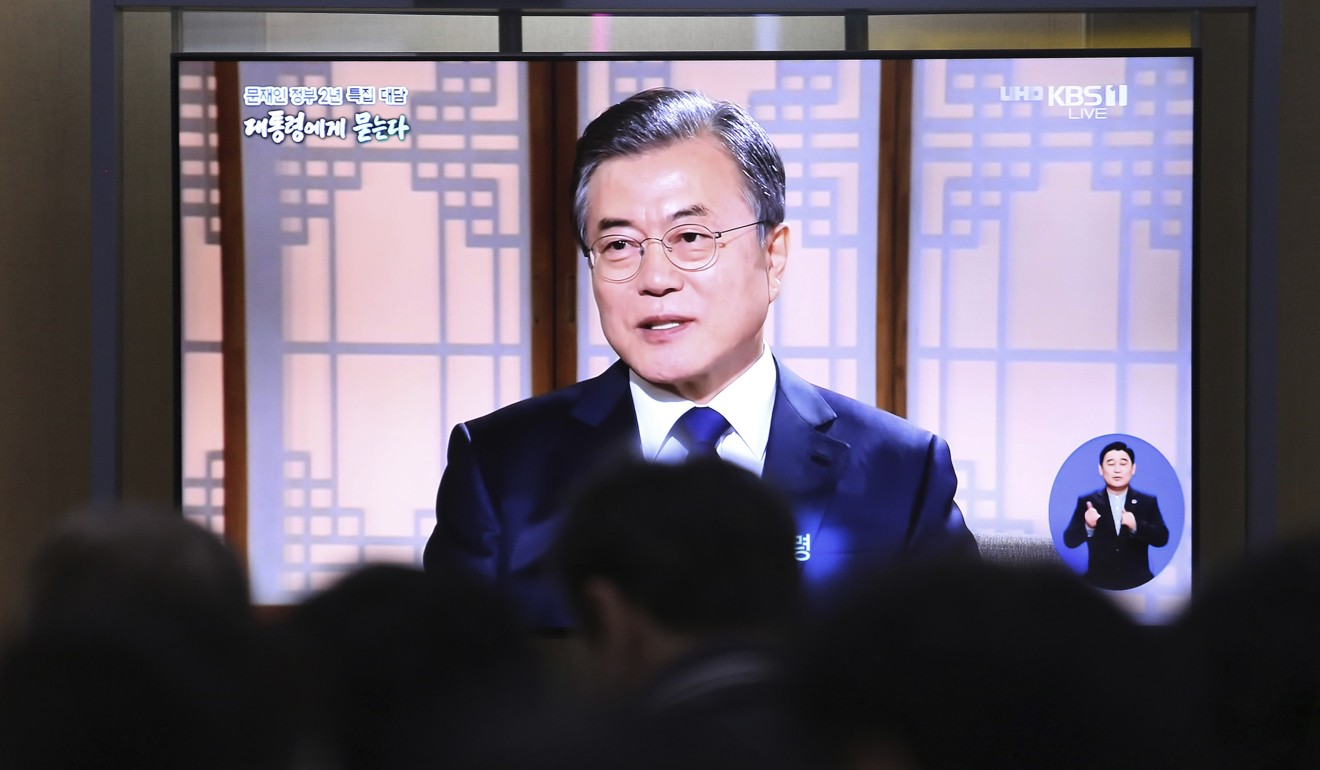
3 in 4 Japanese distrust South Koreans – and the feeling’s mutual
- Diplomatic tiffs between the two countries are reflected in personal attitudes, a study has found
- Among the issues that rankle are everything from Japan’s colonial period to the name of the sea separating them

Three-quarters of Japanese do not trust their South Korean neighbours – and the feeling is mutual, a study has found.
A record 74 per cent of Japanese were now distrustful of South Koreans, found the study by the Yomiuri Shimbun in Japan and the Hankook Ilbo in Korea. That was more than at any time since the study was first conducted in 1996 and well above last year’s figure of 60 per cent. Meanwhile, 75 per cent of South Koreans had no trust in the Japanese, down from 79 per cent last year.
Those personal sentiments appeared to mirror a strained diplomatic relationship between the two countries. Some 83 per cent of Japanese respondents thought bilateral relations were bad, up from 63 per cent last year, while 82 per cent of Koreans thought the same, up from 69 per cent last year.
WHAT’S THE PROBLEM?
The survey also identified a key issue of division: Japan’s use of South Korean sex slaves in military brothels during its occupation of the Korean peninsula. Some 87 per cent of South Koreans said Japan still needed to apologise over its use of the sex slaves, euphemistically known as “comfort women”, while 80 per cent of Japanese felt their country had already apologised enough.

Other bones of contention between the countries include a lawsuit by South Koreans forced to work as labourers for Japanese companies during the colonial period, the name of the sea dividing them (the Sea of Japan or the East Sea, depending on who you ask), and Tokyo’s repeated claims to sovereignty over a rocky islet known as Dok-do in Korea but claimed as Takeshima in Japan. They are also still squabbling over an incident in January, in which Tokyo claims a South Korean warship locked its fire control onto a Japanese reconnaissance aircraft.
“I actually think that it’s quite normal that neighbouring countries do not like each other very much – there are plenty of examples around the world – but I agree that the perceptions of Japanese and Korean people have deteriorated sharply in recent years,” said Yoichi Shimada, a professor of international relations at Fukui Prefectural University.
“Just five years ago, Japanese women could not get enough of Korean pop stars or actors, but that K-pop boom is largely over now,” he said.

Shimada said Japanese felt their prime minister, Shinzo Abe, had made significant concessions to South Korea in 2015 when he signed an agreement to end the dispute over the comfort women, and were unhappy that Seoul’s new government had simply scrapped the deal. He added that the government of President Moon Jae-in was encouraging hostility towards Japan.
NEGATIVE EMOTIONS
“There are some very negative emotions and stresses between the two countries at the moment and I’m not surprised these figures are so high,” said Young-chae Song, a professor at Seoul’s Sangmyung University.
“Personally, I think that those negative emotions and the bad atmosphere is the fault of this South Korean government. President Moon appears to have gone back on efforts by the previous administration to draw a line under the past – not to forget it, but in order to be able to move forward.
“I worry that ties with Japan are being used as a political tool and that it suits some to be on bad terms with Tokyo.”

But Rah Jong-yil, a South Korean former diplomat who was stationed in Japan, was less pessimistic and cited the comment by former British Prime Minister Benjamin Disraeli that “There are three kinds of lies: lies, damned lies and statistics.”
“The responses to this sort of survey depend on how the questions are worded, while attitudes change so quickly that it is impossible to say with certainty that these percentages are completely accurate,” he said.
“Yes, there are some deep differences between our two nations and that is very regrettable,” he said. “But it is also regrettable that the media on both sides seem to enjoy writing these kinds of headlines and deepening the problems.”